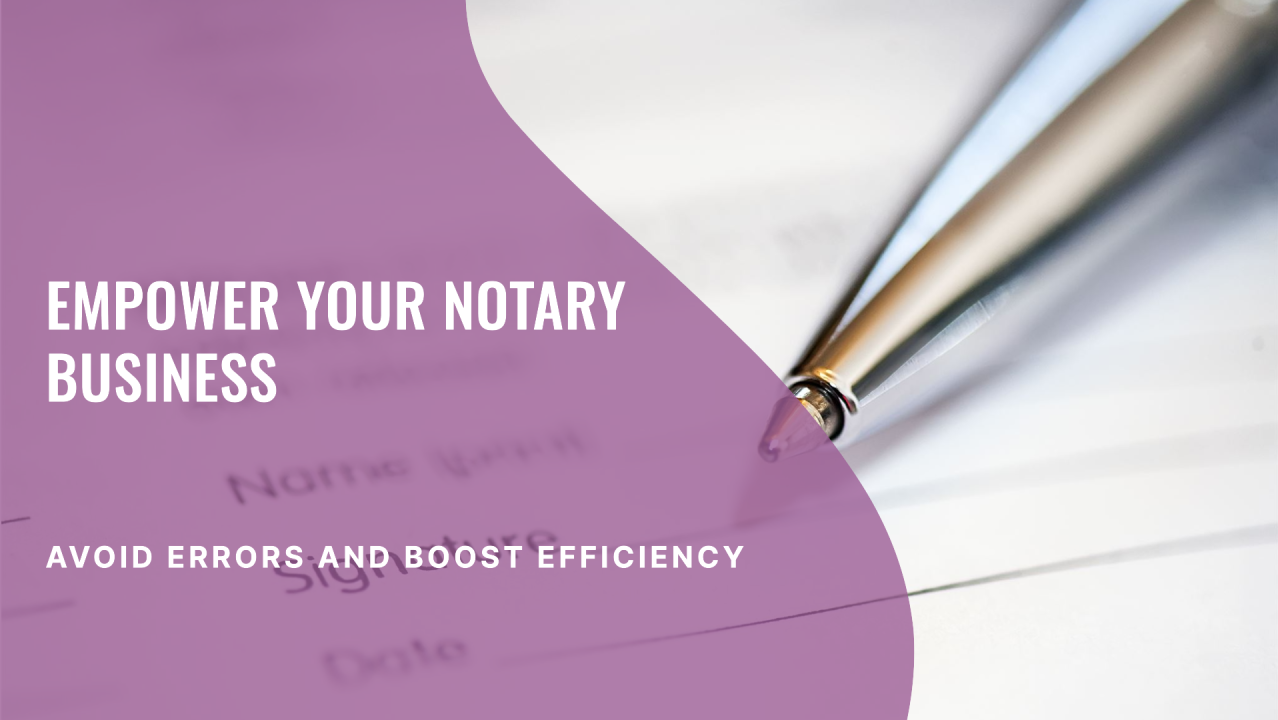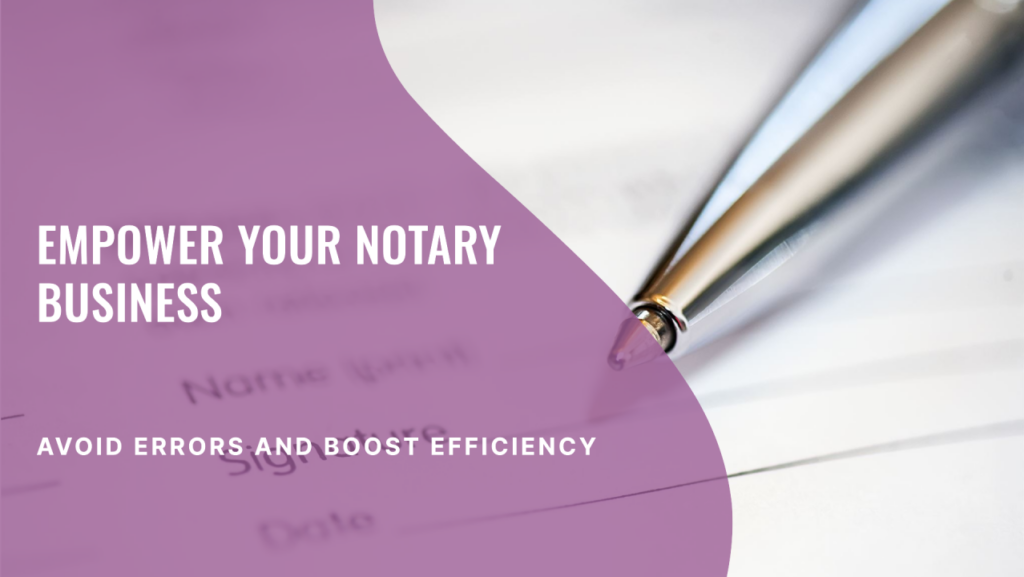
Empowering Notaries Through Error Avoidance
 Introduction
Introduction
Notaries play a pivotal and indispensable role in legal transactions, acting as impartial witnesses to the signing of important documents. Their work ensures these transactions’ authenticity and legality, safeguarding against fraud. However, even the most experienced notaries can make mistakes, and these errors can have significant, sometimes devastating, consequences for all parties involved. In this opinion piece, I will discuss twelve common mistakes notaries should avoid and provide practical tips to help notaries improve their services and maintain their professional integrity.
Overview of Common Mistakes
Before we dive into the details, let’s quickly outline the twelve common mistakes that notaries often make:
- Failing to Verify Identity
- Overlooking Document Completeness
- Neglecting to Record Transactions
- Misunderstanding Notarial Acts
- Incorrectly Filling Out Certificates
- Improperly Administering Oaths
- Ignoring State-Specific Laws
- Inadequate Recordkeeping
- Providing Unauthorized Legal Advice
- Failing to Maintain Impartiality
- Not Updating Skills and Knowledge
- Poor Communication Skills
Personal Anecdotes and Experiences
In my years as a notary, I’ve encountered many scenarios where avoiding common mistakes has not only saved time and legal trouble but also contributed to my personal growth and professional development. I recall one instance where a colleague failed to verify a signer’s identity adequately. This oversight led to a legal dispute that could have easily been avoided with a more diligent approach. Experiences like these have cemented my belief that continual learning and vigilance are not just crucial but also rewarding in our profession.
The Significance of Notary Errors
Errors in notarized documents can lead to severe consequences, including legal disputes, financial losses, and damage to professional reputations. For example, failing to verify a signer’s identity can result in fraudulent transactions, while providing unauthorized legal advice can lead to legal repercussions for both the notary and the client. Understanding the weight of our responsibilities is the first step toward minimizing errors, and the potential negative impact of notary errors should serve as a constant reminder of the urgency and importance of avoiding these mistakes.
Detailed Breakdown of Each Mistake
Let’s take a closer look at each of these common mistakes and explore practical ways to avoid them:
1. Failing to Verify Identity
Always ask for official identification and compare it with the signer’s appearance.
2. Overlooking Document Completeness
Ensure all necessary fields are filled out before notarizing. Incomplete documents can invalidate the notarization.
3. Neglecting to Record Transactions
Maintain a detailed journal of all notarizations. This record can serve as evidence in case of disputes.
4. Misunderstanding Notarial Acts
Differentiate between acknowledgments, jurats, and other notarial acts. Each has specific requirements that must be met.
5. Incorrectly Filling Out Certificates
Double-check certificates for accuracy. Incorrect information can lead to the rejection of documents.
6. Improperly Administering Oaths
Understand the correct procedures for administering oaths and affirmations. Ensure the signer understands their obligation.
7. Ignoring State-Specific Laws
Stay updated on the laws specific to your state. These can vary significantly and affect how you perform notarizations.
8. Inadequate Recordkeeping
Keep thorough and organized records. Good recordkeeping practices are essential for legal compliance and accountability.
9. Providing Unauthorized Legal Advice
Avoid offering legal advice unless you are a licensed attorney. Always refer clients to legal professionals.
10. Failing to Maintain Impartiality
Remain neutral and unbiased. Your role is to verify identities and witness signatures, not to judge the content of the documents.
11. Not Updating Skills and Knowledge
Participate in continuing education and training programs. The notary field is constantly evolving, and staying updated is essential.
12. Poor Communication Skills
Develop clear and effective communication skills. Ensure that signers understand the notarization process and their responsibilities.
The Role of Continuous Learning and Adaptability
Continuous learning and adaptability are vital in the notary profession. The legal landscape is constantly changing, and new challenges arise regularly. By committing to ongoing education and staying informed about the latest developments, notaries can provide better service and reduce the likelihood of errors.
Conclusion
In conclusion, avoiding common mistakes is crucial for notaries to uphold the integrity of legal transactions and protect all parties involved. Notaries can enhance their professionalism and contribute to a more reliable legal system by understanding and addressing these errors. Let’s commit to continuous learning, vigilance, and proactive error avoidance to empower ourselves and better serve our communities.
Those looking to refine their notarial skills and stay updated on best practices should consider joining professional organizations or attending workshops. Together, we can raise the standards of our profession and ensure that we provide the highest quality of service possible.
